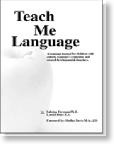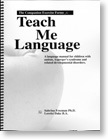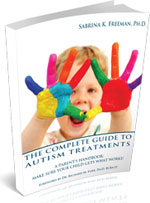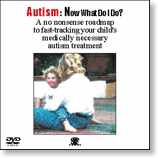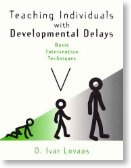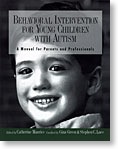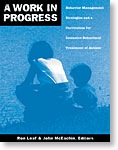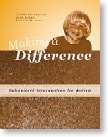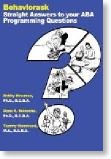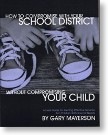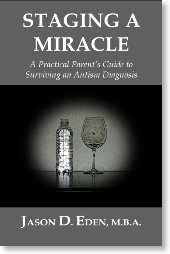diagnosis
You know you’re the parent of a child with autism when you instinctively do a mental checklist for autism on every baby you meet!
21/11/12 15:48 Filed in: autism
I’ve noticed a behavior that I cannot avoid. Every time I encounter a young baby or toddler in a public place, I instantly go into diagnostic mode, paying attention to every detail of the baby’s reciprocal interaction with a stranger i.e., Me!
It’s a reflexive habit, and quite impossible to stop. Once that baby makes eye contact with me, and starts the unmistakable, non-verbal exchange with me, so happy that someone is paying attention, I relax. When that baby actually tries to get my attention, I stop staring and move on. The diagnosis is done. The kid passes the test.
I’m still able to hold myself back and refrain from reporting my findings to the unsuspecting parent. Let’s hope that lasts!
It’s a reflexive habit, and quite impossible to stop. Once that baby makes eye contact with me, and starts the unmistakable, non-verbal exchange with me, so happy that someone is paying attention, I relax. When that baby actually tries to get my attention, I stop staring and move on. The diagnosis is done. The kid passes the test.
I’m still able to hold myself back and refrain from reporting my findings to the unsuspecting parent. Let’s hope that lasts!
Coming soon to a neighborhood near you!
12/06/12 13:30 Filed in: autism | Asperger's Syndrome
The Atlantic Magazine recently published an excellent article enumerating the myriad ways that an autism diagnosis changes a family forever. For those of us who have been in the world of autism for decades, these issues are well known and have been experienced firsthand, but for those on the periphery, the following inventory gives some insight as to why parents of children with autism become cantankerous as the years roll on.
The first example of the “silver lining” of the proliferation of autism is the diagnosis of the grandchild of the founders of Autism Speaks, the Wright family. Here we have well-heeled people with a megaphone, tremendous resources, outstanding organizational ability and the wherewithal to make a difference not only for their grandchild but also for the entire population of families and children with autism world-wide.
Recently I came across another so-called draft pick who is making a difference. Dr. Ricardo Dolmetch, a neuroscience researcher, who recently joined our club of parents of children with autism. Dr. Dolmetch changed his entire research focus to make a difference. He is now working to crack the autism code to lead to a better understanding of the disorder, with the goal of better treatments and, hopefully, an eventual cure.
With every new diagnosis, the ranks of our club grow. Hopefully, there will be strength in numbers. Until a cure is found, demographic facts on the ground are sure to change the status quo to the point that society will have to accommodate the reality of having a child diagnosed with autism so that the traumatic parent advocacy burden and financial ruin from self-funded autism treatment will be a thing of the past.
- the awful realization that one’s child will have monumental challenges with basic skills that we all take for granted such as language, self-help skills, academic skills, social skills, employment and living arrangements with dignity!
- the fact that the parents’ economic future will be crushed due to a) the massive, never-ending cost of therapy and supervision and b) the opportunity costs of careers derailed throughout the lifespan of the family.
- the no-choice advocacy that necessarily pits parents against recalcitrant school districts, health care bureaucrats or insurance companies and government agencies who deny necessary and appropriate autism accommodation.
- the career of the mother or father that is irreparably damaged early on in the child’s treatment due to the ongoing management and advocacy required to ensure access to treatment and appropriate education.
- a society oblivious to the time-consuming and financially ruinous reality of having a child afflicted with autism
The first example of the “silver lining” of the proliferation of autism is the diagnosis of the grandchild of the founders of Autism Speaks, the Wright family. Here we have well-heeled people with a megaphone, tremendous resources, outstanding organizational ability and the wherewithal to make a difference not only for their grandchild but also for the entire population of families and children with autism world-wide.
Recently I came across another so-called draft pick who is making a difference. Dr. Ricardo Dolmetch, a neuroscience researcher, who recently joined our club of parents of children with autism. Dr. Dolmetch changed his entire research focus to make a difference. He is now working to crack the autism code to lead to a better understanding of the disorder, with the goal of better treatments and, hopefully, an eventual cure.
With every new diagnosis, the ranks of our club grow. Hopefully, there will be strength in numbers. Until a cure is found, demographic facts on the ground are sure to change the status quo to the point that society will have to accommodate the reality of having a child diagnosed with autism so that the traumatic parent advocacy burden and financial ruin from self-funded autism treatment will be a thing of the past.
Thomas Sowell Got it Half Right
08/06/12 11:14 Filed in: autism | Asperger's Syndrome
In his latest article, Redefining autism a sales tactic, Dr. Thomas Sowell, Rose and Milton Friedman Senior Fellow on Public Policy at the Hoover Institution at Stanford University, makes the point that autism is being redefined and many more children who would not be diagnosed as autistic in the past are being diagnosed today in greater numbers. His argument is that the redefining of autism to include a larger number of children is a way for politicians to bleed more money from the taxpayer. Dr. Sowell clearly understands the condition of genuine autism when he states:
Every dollar spent on children falsely labelled autistic is a dollar lost -- and urgently needed -- in dealing with the severe problems of genuinely autistic children.
Prior to the reclassification of autism in the DSM-V, I would have disagreed vociferously with his argument regarding the purported motive of politicians. Perhaps abuse occurred in the past due to economic incentives, with some children being diagnosed with autism, rather than intellectual impairment or speech and language; however, full fledged autism is so obvious that the occasional parent on the margin who conspires with a diagnostician would not account for the true explosion of children with autism that we see today. It is my view that we do have a real increase in children with autism.
Unfortunately, with the introduction of the DSM-V, we have a new diagnostic classification of autism that includes an army of children who are very mildly affected. This is going to:
Although I’m not sure that I would agree with Sowell’s argument that the motive of politicians is to overtax the public by using autism as an excuse, it is correct that with the new diagnostic criteria, treatment for children with autism is in danger of being rationed. So if you have a child with genuine autism, get ready for a fight.
Every dollar spent on children falsely labelled autistic is a dollar lost -- and urgently needed -- in dealing with the severe problems of genuinely autistic children.
Prior to the reclassification of autism in the DSM-V, I would have disagreed vociferously with his argument regarding the purported motive of politicians. Perhaps abuse occurred in the past due to economic incentives, with some children being diagnosed with autism, rather than intellectual impairment or speech and language; however, full fledged autism is so obvious that the occasional parent on the margin who conspires with a diagnostician would not account for the true explosion of children with autism that we see today. It is my view that we do have a real increase in children with autism.
Unfortunately, with the introduction of the DSM-V, we have a new diagnostic classification of autism that includes an army of children who are very mildly affected. This is going to:
- give the neuro-diversity folks legitimacy for the bogus contention that they suffer from autism and can therefore speak for children with autism who are nonverbal,
- have autism redefined as a “difference” rather than a disabling condition,
- provide “hothousing” opportunities for parents whose children do not suffer from autism or Asperger’s syndrome,
- bleed resources from children who truly need intensive behavioral treatment in order to be productive, functional adults who can live a life in dignity rather than being institutionalized
- justify the rationing of treatment from the most severely affected children due to the fact that they will not advance as quickly as the others on the autism spectrum. This rationing will come from educational systems, health-care systems and/or insurance companies.
Although I’m not sure that I would agree with Sowell’s argument that the motive of politicians is to overtax the public by using autism as an excuse, it is correct that with the new diagnostic criteria, treatment for children with autism is in danger of being rationed. So if you have a child with genuine autism, get ready for a fight.
The Law of Unintended Consequences Meets Autism Mandates: Why Autism and Asperger's Syndrome Seem Interchangeable
08/11/11 10:45 Filed in: autism | Asperger's Syndrome
The funding incentive often explains much of what seems illogical.
Today we have yet another article about the confusion between autism and Asperger’s syndrome. It appears that despite the similar scores on various tests given during an ASD assessment, there is wide variation across the U.S. between the number of children given a diagnosis of either Asperger’s syndrome or autism. The study’s researchers urge parents not to concentrate too much on the difference between autism, PDD-NOS, and Asperger’s syndrome, but rather, to look at the child’s difficulties and try to get them help.
For most of us, this sounds like reasonable advice.
However, to anyone who understands the politics of autism, it becomes abundantly clear that these researchers are completely disconnected from the various issues with which parents must contend when it comes to autism spectrum disorders. Parents need an objective diagnosis in order to do research on how to get help; however, if treatment and support services are not provided for those with any diagnosis other than autism, parents are put into an impossible situation. On the one hand, parents need the truth about where their child is diagnosed on the autism spectrum; on the other hand, that truth may create a barrier to treatment services, if society predicates a formal autism label to service or insurance dollars.
Based on recommendations of the study’s authors, it’s obvious these researchers don’t have a clue regarding what parents actually goes through.
The confusion, which is actually a complete mismanagement of the field of autism spectrum disorders, is then used by researchers as a justification to move toward a general diagnosis of ASD, rather than differentiating between Asperger’s syndrome, PDD-NOS, and autism. This advice is political rather than clinical. We know the difference between autism and Asperger’s syndrome and we desperately need accurate diagnoses! Autism and Asperger’s syndrome must be differentiated for the benefit of both groups of children and adults. An accurate Asperger’s syndrome diagnosis must never be an obstacle to treatment funding.
A better idea: 1) have states’ mandates cover all ASD treatments, and then 2) use objective criteria to differentiate between autism, PDD-NOS, and Asperger’s syndrome. Once access to treatment services dollars are decoupled from the diagnostic label, researchers may be pleasantly surprised as to how the autism- Asperger’s syndrome confusion will cease to be an issue.
Today we have yet another article about the confusion between autism and Asperger’s syndrome. It appears that despite the similar scores on various tests given during an ASD assessment, there is wide variation across the U.S. between the number of children given a diagnosis of either Asperger’s syndrome or autism. The study’s researchers urge parents not to concentrate too much on the difference between autism, PDD-NOS, and Asperger’s syndrome, but rather, to look at the child’s difficulties and try to get them help.
For most of us, this sounds like reasonable advice.
However, to anyone who understands the politics of autism, it becomes abundantly clear that these researchers are completely disconnected from the various issues with which parents must contend when it comes to autism spectrum disorders. Parents need an objective diagnosis in order to do research on how to get help; however, if treatment and support services are not provided for those with any diagnosis other than autism, parents are put into an impossible situation. On the one hand, parents need the truth about where their child is diagnosed on the autism spectrum; on the other hand, that truth may create a barrier to treatment services, if society predicates a formal autism label to service or insurance dollars.
Based on recommendations of the study’s authors, it’s obvious these researchers don’t have a clue regarding what parents actually goes through.
The confusion, which is actually a complete mismanagement of the field of autism spectrum disorders, is then used by researchers as a justification to move toward a general diagnosis of ASD, rather than differentiating between Asperger’s syndrome, PDD-NOS, and autism. This advice is political rather than clinical. We know the difference between autism and Asperger’s syndrome and we desperately need accurate diagnoses! Autism and Asperger’s syndrome must be differentiated for the benefit of both groups of children and adults. An accurate Asperger’s syndrome diagnosis must never be an obstacle to treatment funding.
A better idea: 1) have states’ mandates cover all ASD treatments, and then 2) use objective criteria to differentiate between autism, PDD-NOS, and Asperger’s syndrome. Once access to treatment services dollars are decoupled from the diagnostic label, researchers may be pleasantly surprised as to how the autism- Asperger’s syndrome confusion will cease to be an issue.
Autism is too serious for pretending
24/10/11 09:55 Filed in: autism | Asperger's Syndrome
Seemingly every day, a person purportedly afflicted with autism gives an eloquent speech on a sophisticated concept. Or, equally as disturbing, we read about someone who independently goes through life and at the age of 25, is suddenly diagnosed with autism. Read more...
Staging a Miracle: An Interview with Jason Eden
02/09/11 15:22 Filed in: autism | Asperger's Syndrome
I had the privilege of speaking with Jason Eden, the author of Staging a Miracle: A Practical Parent’s Guide to Surviving an Autism Diagnosis. In this interview, Jason discusses his journey from diagnosis to treatment and ultimate success with his son. Read more...
Risk of autism recurrence higher than we thought: wait a minute!
15/08/11 09:45 Filed in: autism | Asperger's Syndrome
Today, the internet is a buzz with a new claim that asserts the following: if you have one child with autism, your odds of having another is 19% (and 25% if the new baby is a boy)! That is a pretty shocking statistic, and yes, Read more...


